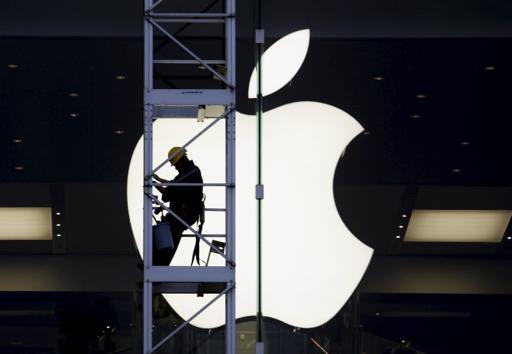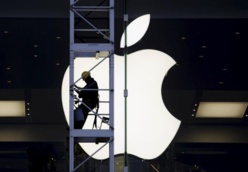Terming Apple’s rhetoric as “false” the U.S. Justice Department in the high-profile precedent setting case said Apple’s arguments were “… also corrosive of the very institutions that are best able to safeguard our liberty and our rights: the courts, the Fourth Amendment, longstanding precedent and venerable laws, and the democratically elected branches of government,"
The FBI is trying to force Apple to unlock the encryption in its flagship smartphone which belonged to one of the San Bernardino shooters. Last month, the FBI even got a court order which demanded that Apple write new software which disables the passcode protection so that they can access Rizwan Farook, the shooter’s iPhone.
Apple has stood its ground and has yet to comply with the order since it says creating a "back door" to its smartphones could be potentially abused by criminals and government alike. It has also shot back saying the U.S. Congress has not authorized the Justice Department to make such demands.
The Justice Department’s filing was the last chance to make its case ahead of a hearing which is scheduled to take place in a Federal Court on March 22 in California.
Apple’s clash with the FBI’s demands has intensified long-running debates over the quantum of monitoring capability law enforcement and intelligence agencies should have in this digital age.
Portraying its stance as "the primary guardian of Americans' privacy" Apple has attacked the FBI’s investigation and has termed it as "shoddy".
Prosecutors from the Justice Department have countered saying Apple has "deliberately raised technological barriers" so as to prevent the execution of a warrant.
Apple has maintained that if it were to comply with such requests it would open the floodgates of pressure for the company from repressive regimes which are likely to want similar assistance.
The Justice Department has countered saying, "… according to Apple's own data, China demanded information from Apple regarding over 4,000 iPhones in the first half of 2015, and Apple produced data 74 percent of the time."
As per the FBI, Rizwan Farook and his wife Tashfeen Malik carried out their shooting which killed 14 people on December 2. They were inspired by Islamic militants. The FBI wants to read the data in Farook's work phone in order to unravel potential links with other militant groups he may have worked with.
While the Justice Department has received support from six relatives of the San Bernardino victims, leaders from the tech industry, including, Microsoft, Google and Facebook have stood behind Apple.
Prosecutors have said the Justice Department’s requests are not about undermining encryption but to narrowly access the "non-encryption barrier" in the iPhone.
Citing a 1807 case wherein it was held that a clerk working for Aaron Burr, the then former U.S. Vice President, could be forced to decode a letter penned by Nurr if doing so did not lead to self-incrimination, prosecutors from the Justice Department have held requesting decryption services isn’t something new.
Earlier this week, the Justice Department tried to overturn a rule which protected Apple from unlocking an iPhone in a drug case in New York which raised similar issues. In that case, a Brooklyn judge gave Apple two weeks to respond to the government's bid.
The FBI is trying to force Apple to unlock the encryption in its flagship smartphone which belonged to one of the San Bernardino shooters. Last month, the FBI even got a court order which demanded that Apple write new software which disables the passcode protection so that they can access Rizwan Farook, the shooter’s iPhone.
Apple has stood its ground and has yet to comply with the order since it says creating a "back door" to its smartphones could be potentially abused by criminals and government alike. It has also shot back saying the U.S. Congress has not authorized the Justice Department to make such demands.
The Justice Department’s filing was the last chance to make its case ahead of a hearing which is scheduled to take place in a Federal Court on March 22 in California.
Apple’s clash with the FBI’s demands has intensified long-running debates over the quantum of monitoring capability law enforcement and intelligence agencies should have in this digital age.
Portraying its stance as "the primary guardian of Americans' privacy" Apple has attacked the FBI’s investigation and has termed it as "shoddy".
Prosecutors from the Justice Department have countered saying Apple has "deliberately raised technological barriers" so as to prevent the execution of a warrant.
Apple has maintained that if it were to comply with such requests it would open the floodgates of pressure for the company from repressive regimes which are likely to want similar assistance.
The Justice Department has countered saying, "… according to Apple's own data, China demanded information from Apple regarding over 4,000 iPhones in the first half of 2015, and Apple produced data 74 percent of the time."
As per the FBI, Rizwan Farook and his wife Tashfeen Malik carried out their shooting which killed 14 people on December 2. They were inspired by Islamic militants. The FBI wants to read the data in Farook's work phone in order to unravel potential links with other militant groups he may have worked with.
While the Justice Department has received support from six relatives of the San Bernardino victims, leaders from the tech industry, including, Microsoft, Google and Facebook have stood behind Apple.
Prosecutors have said the Justice Department’s requests are not about undermining encryption but to narrowly access the "non-encryption barrier" in the iPhone.
Citing a 1807 case wherein it was held that a clerk working for Aaron Burr, the then former U.S. Vice President, could be forced to decode a letter penned by Nurr if doing so did not lead to self-incrimination, prosecutors from the Justice Department have held requesting decryption services isn’t something new.
Earlier this week, the Justice Department tried to overturn a rule which protected Apple from unlocking an iPhone in a drug case in New York which raised similar issues. In that case, a Brooklyn judge gave Apple two weeks to respond to the government's bid.















